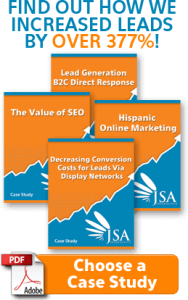Any business engaged in B2B social media marketing obviously wants their social media posts to be seen by as many people as possible, but in order to make that happen, you have to go in with a posting plan before you start tweeting or updating Facebook. Using social media platforms for B2B business is not quite the same as using social media for your own personal activities. Not only are the types of content you post going to be entirely different, but you need to put more thought into the timing aspect than you would if you were just posting photos of your kid’s first birthday party so the extended family and your friends can have a look. Timing doesn’t much matter for a personal account, because you know that your friends or followers actually know you and will be interested in checking out your stuff regardless of when they log onto the computer, but the same cannot be said for a business’s social media streams.
When you post to your social media accounts for your business, you want every post to count as much as possible, and that means posting at a time when the most eyeballs in your target audience are likely going to see it. How do you figure that out? Easy:
B2B Social Media Marketing: Determining the Right Time to Post
To figure out the right time for you to post for your business, you need to carefully consider your audience and their habits.
- Location – Location matters. The Internet provides us with a global audience to tap into, but each geographical area that audience is located in is running on a different time zone. If your target audience is running on Eastern Standard Time, then it’s pointless to tweet at 3 AM, because by the time they wake up and get online, your tweet will have been pushed way down by other, newer tweets, and no one will see it. Consider the location of your followers and plan your social media posts accordingly.
- Schedule – While you can’t go around asking each of your followers to give you their day to day schedule so you can plan when the best time to post to Facebook is, you can consider who your target audience is and infer a general daily schedule from there. If, for example, your target audience works a job that has them sitting in front of a computer all day, then you know to post to your social media accounts during regular business hours. You can drill down even further and aim to post at the beginning of the work day (say somewhere around 9 AM), when people are getting to work, checking email and checking Facebook, during the lunch hours, or towards the end of the work day. If your target audience does not work a job that has them in front of a computer all day, then you know to post after regular business hours, when they are home and likely checking their email and such from there.
Note: If you’re working on developing buyer personas for that audience, this might be helpful information for you to include for future reference, if you so desire.
These are just two simple things to consider before you post to Facebook, Twitter, Pinterest, or any other social media platform you are active with. Aiming to post when your audience is actually watching is the best way to ensure that your message reaches as many people as possible.
[single_callout/]













